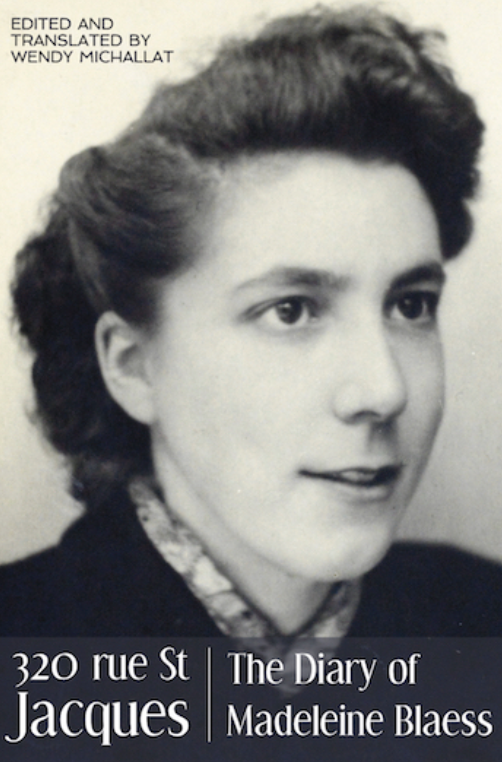Outreach Project and Teaching Resources: Life Under Occupation

This post is part of a series on outreach projects undertaken by ASMCF members.
Dr Wendy Michallat’s work on British student Madelaine Blaess’s papers offer a fantastic opportunity for schools to integrate historical documents and the latest academic developments into their schemes of work.
The Madeleine Blaess diary and Phoney War letters are an exciting resource usable in the History and French classrooms. Teaching packs for use at Key Stages 4 and 5 are being developed in collaboration with schools in the Sheffield, Leeds and York areas, and the diary also fits well with the local history project brief at both Key Stages 2 and 3 in Yorkshire and Humber, as well as a channel for understanding historical events of global import which is a more clearly delineated expectation at Key Stage 3. A Level resources could be used separately in either French or History but would also be an excellent way of supporting students conducting their independent research project.
This is a unique resource as it is the only known diary written by a British student during the Occupation. Most British students had either left by 1940 or did not come to France after the declaration of war in 1939, and Britons still living in occupied France were interned. As she had French papers and extended family near Paris, Madeline appears to have been left relatively alone by the authorities. Her diary reflects and engages with military and political events, but also offers an unprecedented day-by-day account of the struggle to manage material deprivation, physical hardship, mental exhaustion and depression during the Occupation. Equally, the diary is an ideal platform from which to discuss the challenges facing young women who sought professional careers at a time when the expectation was still that marriage and family should be a priority for women at the expense of a career. It also provides insights into the amenities, personalities and intellectual forums and resources supporting women in Paris during the Occupation.
An annotated translation of the diary was published open access in 2018 and is available here. A 35 minute documentary film based on the diary, including interviews with friends of Madeleine and with academics who provide historical and cultural context, is also available for screenings. The film will accessible on the website soon, but interested teachers can also contact Dr Michallat if they would like to watch the film with their classes.
More information on Madeleine Blaess’s papers is available on this website. Dr Michallat already has a number of teachers committed to the project but would be glad to hear expressions of interest from anyone else who would like to be involved in the design of study materials for schools, or any school interested in integrating the material within their curriculum. For more information on schools resources and any interest in trialling them please use the online contact form here.
Image: White Rose University Press
